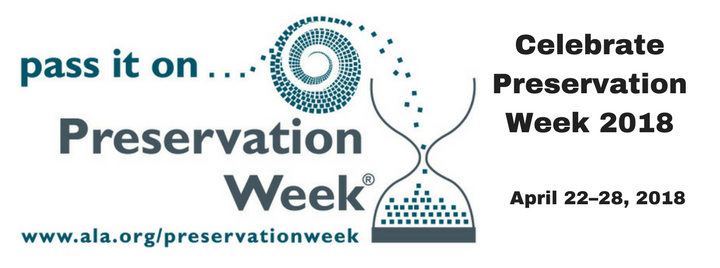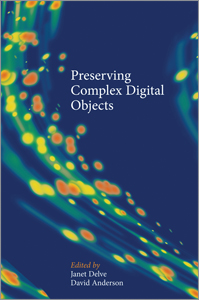Celebrating Preservation Week 2018: an interview with Janet Delve and David Anderson

ALA encourages libraries and other institutions to use Preservation Week to connect our communities through events, activities, and resources that highlight what we can do, individually and together, to preserve our personal and shared collections. In collaboration with Facet Publishing, UK, we spoke with some of the field's leading figures to discuss the importance of preservation. Janet Delve and David Anderson are co-editors of Preserving Complex Digital Objects.
Why is preservation awareness so important?
So many institutions today are pushing for a paperless society: for example, banks frequently suggest getting online statements in order to save trees, paper and postage. This is all very well if everyone is confident that ALL the necessary digital records are kept safely, and will be readable in the future. This is a considerable challenge, however, and if you consider the effort required in keeping digital art, computer games, and the 3D models that you might see in a museum, then it just gets harder. However, libraries, archives and museums across Europe have been working concertedly over the last two decades to tackle these issues, so help is at hand. For the rest of us, it is vital that people in all walks of life become aware of  the fragility and difficulties of keeping hold of their material, and realise that whilst our digital lives bring many benefits in terms of searching and accessing material, this does come with a price concerning the maintenance of the data and their platforms. Companies need to keep their digital records, individuals will want to safeguard their personal digital memories, etc.
the fragility and difficulties of keeping hold of their material, and realise that whilst our digital lives bring many benefits in terms of searching and accessing material, this does come with a price concerning the maintenance of the data and their platforms. Companies need to keep their digital records, individuals will want to safeguard their personal digital memories, etc.
What are some of the ways that libraries and other institutions can reach out to communities about the importance of preservation?
Our own experience is of working with national libraries, archives and museums to help develop fundamental solutions to preservation problems. We are aware that these national bodies then communicate with regional, local and commercial bodies through their normal channels to raise awareness about the importance of preservation. The national bodies are also good at reaching individuals through their excellent website, the British Library; the National Archives with their new digital strategy, which mentions the E-ARK project; and the Parliamentary Archives. They are all excellent at communicating all things digital. Regional and local libraries/archives can then reach out to their immediate communities to pass on this knowledge. There are also dedicated organizations such as the Digital Preservation Coalition who are reaching out to many communities, including the banking sector, mentioned above in 1.
Digital collections are growing fast, and their formats are prone to obsolescence. What are some current or proposed digital collection initiatives from cultural institutions that give you hope for the future?
The British Library Digital Scholarship area has a program "Innovate with British Library collections and data". The webpage shows a collection of initiatives that give me hope for the future: help with research, help with digitization, support with collections, staff training, the THOR project which focuses on persistent identifiers - so that we can find digital objects in the future (important for collections and also the Internet of Things). Also the E-ARK project mentioned above which took the first big step in addressing the need for common standards and systems for archiving digital records.
Be sure to check out our previous interviews with Michèle Valerie Cloonan, Walker Sampson, and Helen Forde and Jonathan Rhys-Lewis.
